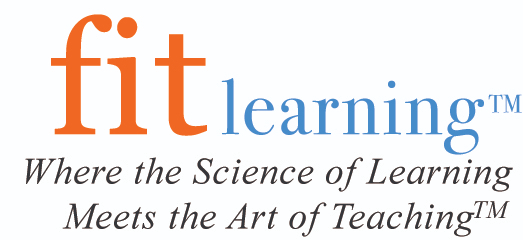Do You Really Know What Educational Support Your Learner Needs?

Many parents know when their child is struggling in school even before it is brought to their attention by the teacher. What they don’t know is how to best help their child. One may assume hiring a tutor to help with homework is a good first step and doing so may help the student improve their grade or pass the class. However, homework help is often just a bandaid or a short-term fix to a deeper problem. More times than not, a child’s school struggles are related to deficits in their core or prerequisite skills. For example, if a third grader is struggling to read grade level text it may be due to a lack of understanding of one or more phonics rules, difficulty with phonemic awareness, a lack of cadence or rhythm when reading, or trouble with a multitude of other skill areas. If a sixth grade math student is struggling with multi-digit multiplication and division, perhaps the problem is as simple as not knowing their multiplication tables or addition and subtraction facts. Both of these skills are vital to progressing to more complex math and a common roadblock for many kids. Identifying the deficits and then training those skills in a way that ensures accuracy and fluency is what Fit Learning Cleveland is all about.
When a parent reaches out for support from Fit Learning Cleveland, one of our first steps is to conduct a comprehensive academic assessment. This assessment is conducted one-on-on by our director, Dr. Corinne Gist. The assessment will identify your learner’s fluency in a range of core or component skills that have been determined, through years of research and testing, to be critical predictors of long-term academic success. Each of these components have been divided into overall skill domains (e.g., phonemic awareness) and corresponding subdomains (e.g., letter sounds). Assessing each subdomain helps paint a truly comprehensive picture of a learner’s academic proficiency. Breaking core skills down in this manner allows our Learning Coaches to identify the component skill deficits that are holding your child back from true mastery of a subject area.
During the assessment, each skill tested is evaluated in terms of two criteria: (1) accuracy and (2) fluency. The accuracy criterion reflects the standard for academic proficiency generally accepted by school districts and involves the number of correct responses obtained out of the total number of responses made. The fluency criterion is our measure of Cognitive Fitness and reflects the standard for proficiency adopted by Fit Learning™.The fluency criterion involves a measure of performance that combines both accuracy and speed. Many published clinical and research findings support the notion that fluency is the most appropriate measure of academic proficiency. It has been repeatedly shown that students who attain fluency in basic skill areas, rather than only accuracy, demonstrate broad-scale Cognitive Fitness. In other words, students are better able to remember what they have learned, resist distractions and fatigue during testing situations, and readily apply previously acquired skills to the learning of new, more complex skills.
So what does the assessment tell you about your child’s academic skills? Assessment results can be interpreted in two ways. First, accuracy of a learner’s performance on specific subdomains can be compared with the criteria for accuracy adopted by the school district. This is usually around 80%. If a learner’s scores are close to this number, it is fair to deduct that he or she is likely performing at or near grade level. Lower scores reflect the need for additional support in those areas. Similarly, if a learner’s skills fall below the fluency criteria adopted by Fit Learning it is likely the learner is struggling in school and may find it difficult to succeed with more challenging subject matter in later grades. Even if the learner is performing accurately and at grade level, lack of fluency may be the root of current academic challenges and may contribute to additional learning problems in the future.
A Comprehensive Fit Learning Assessment will detect if your learner is performing inaccurately and/or below the optimal fluency range on a broad range of skills. A lack of fluency is most likely the cause for their current skill deficits and inability to successfully perform at grade level.
In short, a comprehensive Fit Learning assessment can identify your learner’s skill deficits and help determine a learning plan that is customized to meet your learners specific needs. An assessment identifies deficits but an enrollment is where the work comes in. Our learners make an average of one year’s growth in 40 instructional hours with Fit Learning.
Interested in learning more about your learner’s academic skill profile? Contact us today to schedule your assessment. We offer assessments in Reading, Writing, Math, Comprehension/Problem-Solving, Penmanship, Spelling and Kindergarten Readiness.

